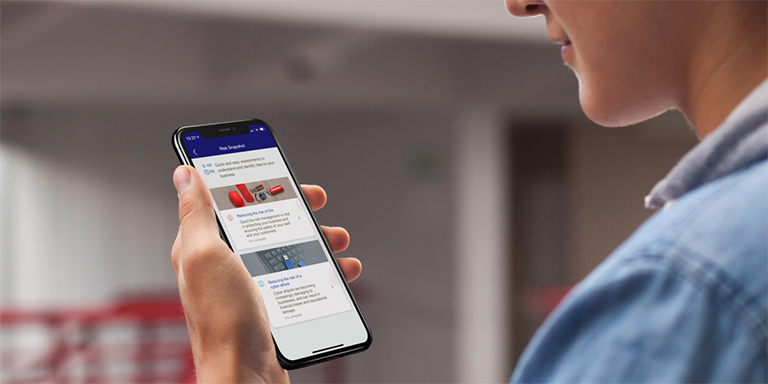Driving Ambitions
With specialist underwriting and claims expertise – bolstered by its risk engineering and collaboration with National Road Safety Partnership Program – Zurich supports Australian transport businesses 24/7.
In the interests of best serving fleet operators Australia-wide, global insurance company, Zurich, has aligned itself closely with road safety experts from the National Road Safety Partnership Program (NRSPP).
The NRSPP helps Australian businesses to implement effective road safety strategies in the workplace and provides myriad resources, research papers and case studies for heavy transport operators online.
“Avoiding crashes should be the first priority of every heavy transport operator as it can severely affect the future wellbeing of their greatest assets – the drivers. But crashes also temporarily halt their trucks from delivering, lower their revenue and profits, and can harm their reputation and customer contracts,” explains Mervyn Rea, Zurich’s Head of Risk Engineering.
“The NRSPP is a valuable tool for improving work-related road safety awareness, particularly for those in the mid-market and SME segments of the transport industry who may not have a dedicated in-house resource for safety and risk management.”
Earlier this year, the NRSPP released a discussion paper that outlined five key considerations for the successful implementation of telematics into an organisation. Those considerations according to NRSPP Discussion Paper: In-Vehicle Monitoring Systems (IVMS): Safety Through Good Practice Telematics included clearly defined goals; selecting technologies for now and future use; building employee acceptance; real-time monitoring and feedback; and management of feedback.
Zurich’s partnership with NRSPP is just one example of their commitment to improving the safety and wellbeing of drivers in the transport industry.
Their in-house Risk Engineers and underwriters also work closely with fleet operators to help them get the most out of their telematics systems from data optimisation to reporting.
While it doesn’t prescribe to a particular provider, Zurich, according to Merv, simply guides its customers through the key features and benefits of a comprehensive telematics solution, in particular around the monitoring of key driver behaviour metrics such as acceleration, braking, cornering and speed.
“Many heavy goods trucking fleets are utilising telematic systems for a variety of functions, including condition monitoring and maintenance, efficiency and utilisation, location and projected estimated time of arrival and driver safety,” Merv says.
“Zurich’s risk engineering team can help their customers determine the best telematics solution. We also assist our customers to develop a driver coaching and continuous improvement program, using the telematics data as a trigger for improvement actions.”
Safer drivers have also been proven to be more efficient with fuel consumption.
Zurich’s Risk Engineers have found that a robust driver-monitoring and coaching program not only reduces crash frequency, but it also reduces maintenance and fuel costs by around 10 per cent on average.
It doesn’t end with telematics. Zurich can also assist their customers to determine what other technologies can assist them to increase driver safety, and as a result reduce crashes, improving productivity and customer service along the way.
Zurich have worked with their customers to manage and assess the outcomes of pilot programs using Seeing Machines technology to detect driver distraction or fatigue early, reducing the potential for a crash.
“Zurich is committed to the transport and logistics industry,” says Craig Sandy, Zurich’s National Underwriting Manager for Motor. “Our expert underwriters, specialist heavy motor claims team and risk engineers work closely together to provide a tailored solution that best meets our customers’ needs.”
Source: Prime Mover Magazine.


